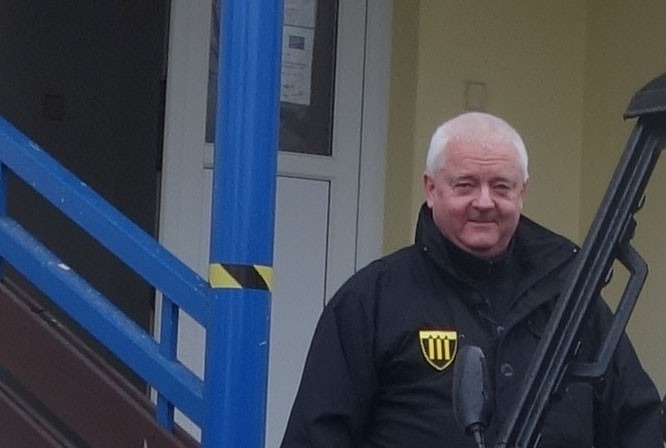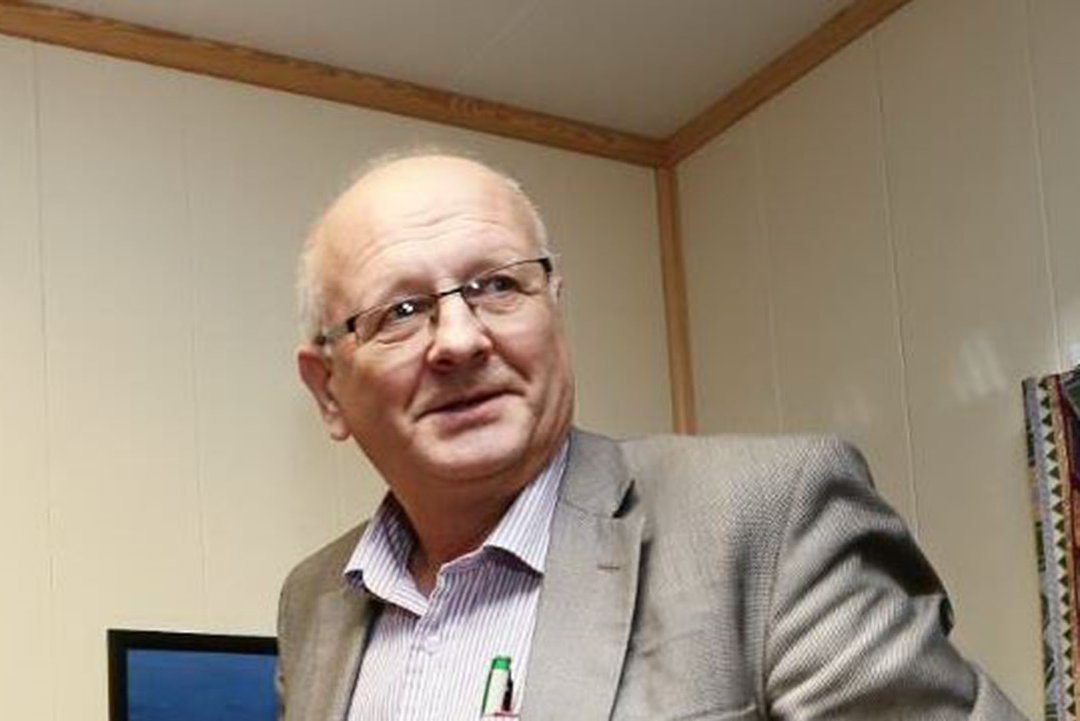Misery in Norwegian intelligence services – bad tradecraft, now also being sued for lost income
Envelopes with cash and secret design drawings
[dropcap]O[/dropcap]n December 5, 2017, Frode Berg, a former Norwegian border guard, was arrested in Moscow by operatives of the FSB, Russia’s counter-intelligence and security agency, for having received classified documents in exchange for money. In Norwegian media, Berg is consistently depicted as only a naive courier, while the Russian state prosecutor said he played a more active role on behalf of the CIA and Norwegian intelligence. The prosecutor believes Berg, a Russian speaker with many leading positions in cultural exchanges with Russia and international coordinator in the local Red Cross, was connected to an operation aimed at obtaining secret information about one of the most important weapons in the Russian arsenal, the new nuclear attack submarines in the Yasen-class.
Berg confessed to working for Norwegian intelligence, and was convicted to 14 years jail on April 16, 2019.
In a bizarre twist to the case, Mikail Bochkarev, a member of the Russian Upper House staff, was detained in late September 2018 in Oslo, the Norwegian capital, a bit before the court case against Berg was to begin. Bochkarev was part of a delegation to an event hosted by the European Center for Parliamentary Research and Documentation. He was accused of “gathering data”. Norwegian media said the charges against him were based on the fact that he moved through the building where the event was being held, rather than staying in one place. According to the intelligence services, he was also suspiciously interested in the photocopiers and the other participants' name badges, a behavior interpreted as a possible sign of illegal data gathering.
The case soon descended into farce. If the Norwegian secret services had hoped to bluff Russia, they failed. Russia was not impressed, and declared they would not be subject to blackmail. With technical evidence sorely lacking, a few weeks later even the Norwegian justice system had to declare that there were no probable cause for detaining Bochkarev further. He was allowed to leave for home in late October 2018. No further alleged Russian spies have been arrested since.
Did someone say deep state?
After the fall of the iron curtain, the Northern provinces were in a prime position to enjoy the benefits of new trade relations with Russia, and a raft of semi-governmental bodies were established to increase relations. The central government, the gaze firmly fixed across the Atlantic, never saw this goal as a particular priority, and duly went on to exploit this new Russian openness for espionage purposes,
The Berg case keeps coming up with new twists. According to revelations from the state broadcaster NRK, the case officer who recruited and gave assignments to Frode Berg was a central Labor Party politician in Finnmark. He was also a former leader of one of the semi-governmental international bodies responsible for creating cooperation and trust with Russia.
For many decades there has been close contact between the military/intelligence services and the political world, especially in this border region. In fact, the central government in far away Oslo has historically regarded the multi-ethnic population of Finnmark as a bit unreliable, and in need of a bit of nudging to make the correct choices. As the British-run Integrity Initiative complained, they are «generally inclined to be soft on Russia as a near neighbor in the North».
Such close alignment between military/intelligence services and a central clique of politicians is hardly unknown in most countries (and nowadays called the deep state in the US), but it is always nice to have it confirmed.
Concrete company suing the intelligence services for loss of income
In 2008, the Norwegian company Ølen Betong started up a daughter company in Murmansk, to take advantage of new opportunities in the offshore oil- and gas sector. It invested millions of dollars, and the operation ran solid profits. The initiative was hailed and supported financially by the Norwegian authorities.
In the years after, Norwegian intelligence services continued trying to recruit Norwegian employees at the Ølen Betong factory in Murmansk, Russia. - “They tried to enlist or contact us at around ten different occasions”, said CEO Atle Berge to NRK. Since the Kola Peninsula is a particular strategic area for Russia, their counterintelligence services were soon on to what was going on. The result? In recent years, two Norwegian workers in the company were temporarily detained and later declared persona non grata in Russia, including CEO Berge.
Now the company is suing the Norwegian state, claiming losses of tens of millions dollars. Norwegian authorities do not want to comment on the lawsuit nor on the specific accusations in it, but the Ministry of Defense confirms that they have subsequently had a meeting with Mr. Berge.
The defense news site aldrimer.no, financed by NATO-supporters and close to defense circles, agrees that the services are unprofessionally run:
“Personnel from E-D have, for example, tried to recruit non-Russian speakers to enter closed military towns, for example Severomorsk, which is the North Fleet's most important home port and headquarters on the Kola Peninsula. Without mastering the language, such an assignment would give a totally absurd risk of being revealed and ending up in Russian prison for a significant number of years.«
If you are going to be indignant, at least don't put it in Wikipedia
In 2014, during the Sochi Olympics, Russian police was on high alert, with pressure to make sure no incidents happened during the games. With other things to worry about, foreign journalists had a free run. But for some mysterious reason, the Norwegian TV-journalist Oystein Bogen was followed closely. He and a colleague complained indignantly that they were stopped multiple times during their drive to the Krasnodar Region in the south of Russia, and spent in total nearly 12 hours in custody throughout their trip.
International non-profit Human Rights Watch (HRW) took up the journalists’ cause, saying it would “shock” the International Olympic Committee, which awarded Russia the prestigious sporting event.
Mr. Bogen is particularly know for his thorough investigative reporting on disposal of nuclear waste at the Russian submarine bases near Severomorsk, which is the North Fleet's most important home port and headquarters, but also the Kosovo War, the Russo-Georgian War and the War in Eastern Ukraine.
The amusing part here is that even Wikipedia has the entry that Bogen «studied Russian at the Norwegian Military Intelligence College”. After being finally declared persona non grata in Russia in 2017, he presently works for the NATO-think-tank Atlantic Council, (i.e. a foreign influence operation), branding dissenting opinions as foreign influence operations. [Facebook uses the Atlantic Council as a
Integrity Initiative
While the Norwegian secret services stumble heavily abroad, they have also had a wobble at home. When it comes to influencing public opinion, they have normally been on steady ground. Traditionally the chief editors and leading journalists have been staunchly on the transatlantic line. Did this happen because there is only one reasonable opinion in these matters? Maybe only people with the right opinions get promoted, (re Manufacturing Consent), but there seems to be a bit more active management than that.
The most recent known incarnation of this type of active management was the Integrity Initiative. The hacked documents from Initiative states that they have built clusters in 35 countries, among them Norway. The documents state that the Norwegian cluster has a cell in Oslo and another in the northern town of Tromso. Some of the goals were to connect «media with academia with policy makers with practitioners in a country to impact on policy and society:» to make «people (in Government, think tanks, military, journalists) see the big picture, making people acknowledge that we are under concerted, deliberate hybrid attack by Russia»
The embarrassment over these exposures of intelligence cells in media should have been huge, but is relatively muted, due to being stonewalled by media themselves and only discussed in alternative media.
Speaking of concrete – what else is Norway up to?
There are some tantalizing clues that Norwegian intelligence participates in wider US/NATO-operations other than just against Russia. During the cold war the military intelligence service lent out operatives under the normal covers to operations all over the world, from Afghanistan to South America, on US or British request. The country's intelligence services participated actively in the murky affairs leading up to the dismemberment of Yugoslavia, leaving at trail of still unsatisfactorily investigated murders.
The Norwegian citizen Jacob Wærness went straight from his job in the counter-terrorism section of the Norwegian intelligence service PST to a job as security chief for the concrete factory owned by the French multinational Lafarge in Syria, in the period between 2011 and 2013. What we know from media is that Wærness later was arrested by French authorities for having paid protection money to IS, thereby financing the illegal group. According to Wærness, Lafarge ended up paying taxes and fees, sometimes garbage bags full of money, as payment for the protection of necessary resources needed for cement production, such as oil and gravel. «The other accused have worked from the headquarters in Paris. He has been on the ground and has been in contact with important intermediaries between Lafarge and armed forces in Syria”, French journalist Matthieu Fauroux said to NRK
Wærness was later released by French authorities. He is declared a persona non grata by Syrian authorities.
Let us have a bit of background. Why was it so important to keep the factory running? The cash payments only tell a small part of the role Lafarge has played in Syria, and the fuss around these payments is maybe a distraction covering the much more extensive role played by the firm in the US/NATO drive for regime change, which started many years before the war in 2011.
One should see this smaller story in the context of the massive tunnels that were revealed in East Ghouta and Douma, world-class engineering and fortification works. The huge amounts of concrete and steel needed to build these underground fortresses must have come from somewhere, and everything indicates that it must have been supplied from Lafarge. Their plant in Jalabiyya in northern Syria had a production capacity of 3 million tons of concrete a year. To get a grasp of how much this is, consider that it is twice of what France used to build the Maginot line before WW2. Everything suggests that it was precisely Lafarge who had been designated to do the job of building the strong military bases for Western powers and oil dictatorships in Syria.
Where do the Russians get these myths from?
Julie Wilhelmsen (herself declared persona non grata by Russia), senior researcher at the Norwegian Institute of Foreign Affairs (NUPI) declares: “It is a well-known matter that Russian security interests have long believed that the border cooperation in the north is being used by the Norwegian authorities to do espionage.”...«[Frode Berg was] a bad choice because it confirms the Russian myth that all Western support and contact with civil society is really just an instrument for undermining Russia and the Putin regime.”
Former intelligence Chief Ola Kaldager is less than impressed over the failed operations the last few years. «I don't think this is good tradecraft”....He believes 'other countries' are pushing Norway to do intelligence work against the eastern neighbor.
Presumably these services have plenty of undeclared successes (they are better on signal intelligence), but the easy way Russian counterintelligence have discovered these cases illustrates another point, more than just bad tradecraft: What is the reason for this hectic activity in the first place? A small country has only limited need for this nuclear submarine information, so why this total identification with the needs of a great power, the US? These cadres are also setting up the country as a main battleground in a WW3, with more and more US bases and forward positions in the US nuclear war apparatus. No good can come out of it. When the elephants fight, it is the grass that suffers.
The battle against the Big Lie killing the world will not be won by you just reading this article. It will be won when you pass it on to at least 2 other people, requesting they do the same.
 Terje Maloy is a Norwegian citizen, with roots north of the Arctic Circle. Nowadays, he spends a lot of time in Australia, working in the family business. He has particular interests in liberty, global justice, imperialism, history, media analysis and what Western governments really are up to. He runs a blog https://midtifleisen.wordpress.com, mostly in Norwegian, but occasionally in English. He likes to write about general geopolitical matters, and Northern Europe in particular, presenting perspectives that are otherwise barely mentioned in the dominant media (i.e. most things that actually matter).
Terje Maloy is a Norwegian citizen, with roots north of the Arctic Circle. Nowadays, he spends a lot of time in Australia, working in the family business. He has particular interests in liberty, global justice, imperialism, history, media analysis and what Western governments really are up to. He runs a blog https://midtifleisen.wordpress.com, mostly in Norwegian, but occasionally in English. He likes to write about general geopolitical matters, and Northern Europe in particular, presenting perspectives that are otherwise barely mentioned in the dominant media (i.e. most things that actually matter).

THIS WORK IS LICENSED UNDER A Creative Commons Attribution-NonCommercial 4.0 International License





